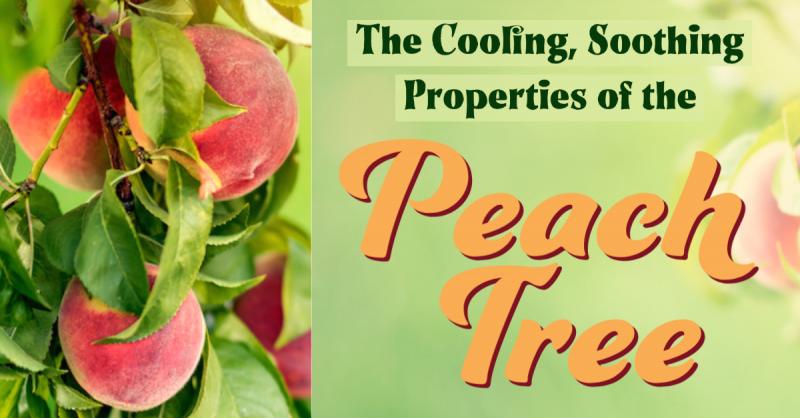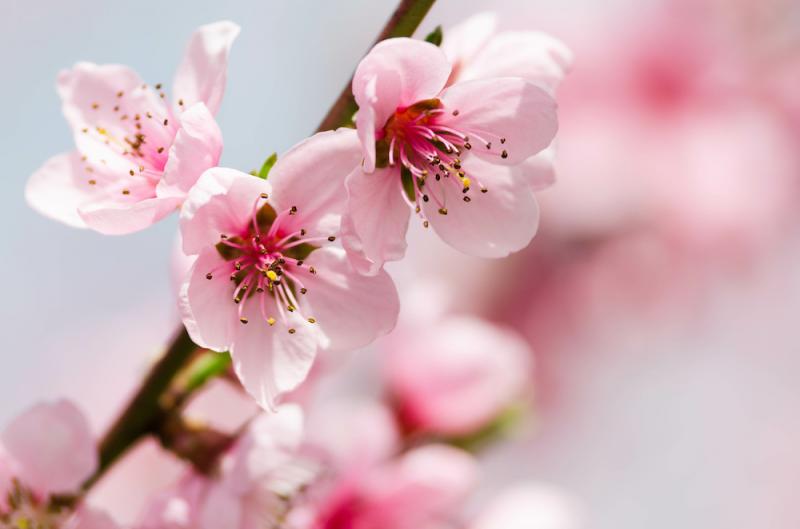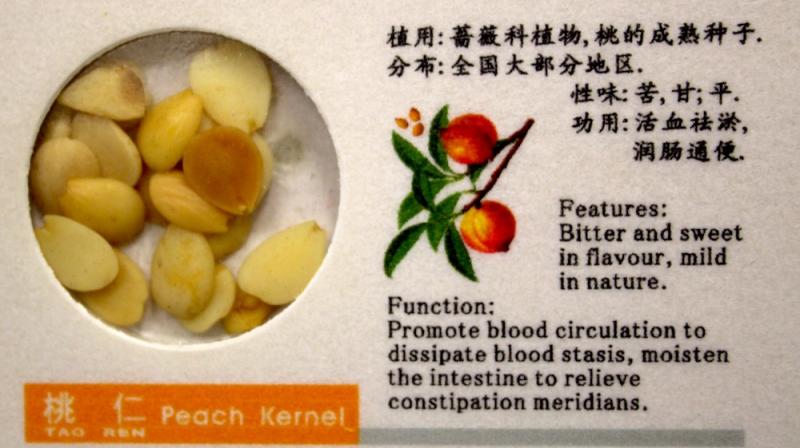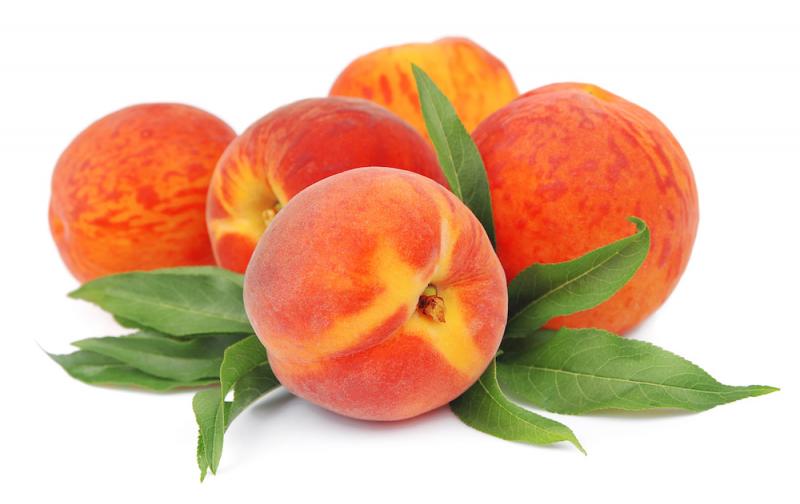
I’ve always loved fall, especially when the fruit stands opened up. I love seeing the boxes of apples, pears, grapes, and peaches for canning, as well as the squashes and pumpkins. Peaches, however, have always been my favorite. I love to eat them, can them, and freeze them for smoothies. Unfortunately, the peaches in the grocery store right now aren’t any good. If they don’t smell like peaches, they aren’t going to taste like peaches. That’s something I find true of fruits and vegetables in general, which is why I shop for produce with my nose, not just my eyes.
Beyond producing peaches for eating; the peach tree has medicinal value. In this case, it’s the bark, leaves, and pits that are all used as cooling remedy, good for any kind of hot, dry, inflamed tissue. However, they are toxic in large doses. We’ll explore how to use them properly, and safely, in a moment, but first let’s talk about the energetics of peaches and their close relatives in the Prunus genus and the Rose family to which it belongs.
Rose Family Energetics
 The Latin name for peaches is Prunus persica. Other trees you’ll recognize in the Prunus genus include apricots (P. armeniaca), wild plum (P. americana), domestic plum (P. domestica), and wild cherry (P. serotina). All of these plants not only produce edible fruits, they also have medicinal properties. They all belong to the rose family, which is the largest producer of fruits in temperate zones of the world.
The Latin name for peaches is Prunus persica. Other trees you’ll recognize in the Prunus genus include apricots (P. armeniaca), wild plum (P. americana), domestic plum (P. domestica), and wild cherry (P. serotina). All of these plants not only produce edible fruits, they also have medicinal properties. They all belong to the rose family, which is the largest producer of fruits in temperate zones of the world.
There is something strong, yet comforting, about these rose family plants. In the book, Healing Plants, Wilhelm Pelikan, describes the rose family thusly, “…bountiful plenty combines with the ability to impose principles of form…These plants appeal to our sense of beauty.” He goes on to say, “In every case, the impression is one of brimming fullness, copious riches, without ever going beyond the bounds of form and measure, and it is this which gives the impression of utter wholesomeness.” You can see this beauty in the peach blossoms pictured to the right.
Roses are associated with love and affection and many members of this family also have an affinity for the emotional heart, if not the actual cardiovascular system. They are used express affection or attractiveness. “She’s the apple of my eye.” “She’s a peach.” Or, “Her cherry-red lips.” It’s as if these plants are extending love to mankind with their sugary, nourishing fruits.
Medicinal Properties
 This nourishing, loving quality carries over into the medicinal qualities of peach. It cools the system, but instead of drying it out, tends to restore moisture to the tissues, making it, in the words of Matthew Wood, “…a superlative remedy when heat or excitation is combined with dryness.” It is calming to the system in allergic reactions and autoimmune conditions. It can help with respiratory problems where the eyes, nose, and throat are irritated or where there is a dry, irritated cough.
This nourishing, loving quality carries over into the medicinal qualities of peach. It cools the system, but instead of drying it out, tends to restore moisture to the tissues, making it, in the words of Matthew Wood, “…a superlative remedy when heat or excitation is combined with dryness.” It is calming to the system in allergic reactions and autoimmune conditions. It can help with respiratory problems where the eyes, nose, and throat are irritated or where there is a dry, irritated cough.
It is also useful for irritation of the digestive tract such as gastritis, dyspepsia, nausea, and tenderness of the stomach. It is mildly astringent and can also help with diarrhea. Emotionally, it can be helpful for nervousness, restlessness, and insomnia from over-excitation or overstimulation. It has a cooling and calming effect.
The kernels (seeds) which are found inside the hard pits are used in traditional Chinese medicine (TCM). They are a bitter remedy that affects the heart, liver, and large intestine meridians. They are used to disperse stagnant blood, possessing anticoagulant and blood pressure-reducing effects. They are also a moistening laxative for the large intestine.
Using Peach Parts
 The medicinal parts of the peach tree contains a small amount of cyanide, which slows down energy production in the mitochondria to cool down the system. This means the leaf and twigs, the primary parts used, are toxic in large doses. However, don't be alarmed. Many useful medicinal herbs contain small amounts of toxic substances, which are harmless when the plant is used medicinally for short periods of time. These herbs are safer than most over-the-counter drugs.
The medicinal parts of the peach tree contains a small amount of cyanide, which slows down energy production in the mitochondria to cool down the system. This means the leaf and twigs, the primary parts used, are toxic in large doses. However, don't be alarmed. Many useful medicinal herbs contain small amounts of toxic substances, which are harmless when the plant is used medicinally for short periods of time. These herbs are safer than most over-the-counter drugs.
Furthermore, the medicinal action of the plant is destroyed by heat, so you don’t want to make a decoction of it. It’s best to make a cold infusion of the pieces of small twigs or bruised fresh leaves. You can also extract them in alcohol. You can add honey or sugar to the tincture to make a syrup. Sip small amounts of the tea or take 1-10 drops of the tincture.
To use the kernels, break open the pits to remove the kernels. These can also be made into a cold infusion or tincture. In TCM, three to nine grams is the proper dose, and probably the amount needed to use them as a laxative.
The flowers can also be used to make a tea which has also have a cooling, soothing effect. And, of course the fruits are a healthy treat to enjoy when they’re in season.
Steven's Articles
-

-
Eucommia Bark
A superior tonic that promotes kidney, structural,…
January
-

-
Goldenthread, Phellodendron, and Yellow Root
Three herbal remedies containing the infection-fighting…
-

-
Teasel
A traditional herb for healing bones and joints…
-

-
Barberry and Healthy Personal Boundaries
A thorny shrub for fighting infections and supporting…
December
-

-
The Evidence for Berberine
A yellow alkaloid found in traditional infection-fighting…
-

-
The Sensible Use of Caffeinated Herbs
Kola nuts, guarana, and yerba mate and other herbs…
-

-
The Health Benefits and Problems with Coffee
This popular caffeinated beverage can be beneficial…
October
-

-
Understanding Caffeine & Cellular Adaptation
Preserving the power of caffeine's buzz and the…
September
-

-
Horseradish
A pungent spice for aiding protein metabolism…
-

-
Banaba or Crepe Myrtle
A beautiful tree from Southeast Asia whose leaves…
August
-

-
Monkeyflowers
Flower essences to help see ourselves more clearly…
-

-
Mariposa Lilies
Strengthening the bond between mother and child…
-

-
The Noble Bay Leaf
A common kitchen herb for aiding digestion and…
-

-
Epimedium: Horny Goat Weed
A circulatory stimulant and kidney yang tonic…
July
-

-
The Medicinal and Nutritional Benefits of Apricots
A nutritious fruit and valuable medicinal seed for coughs

